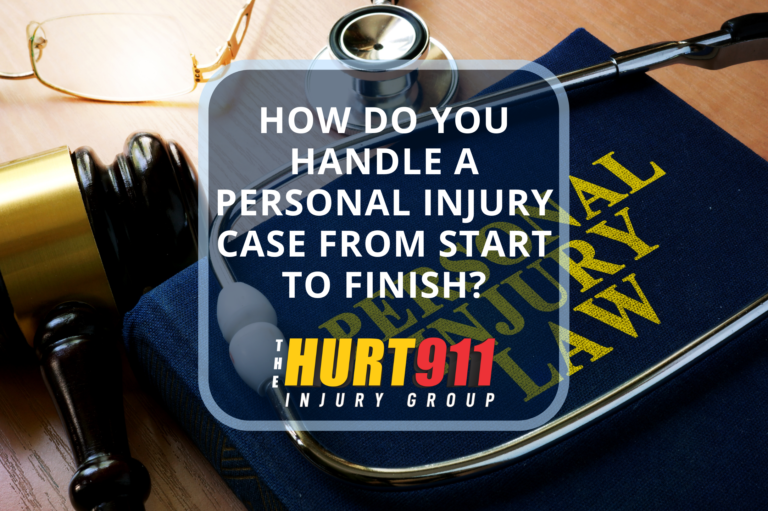Experiencing a car accident can be a life-altering event, not only due to the immediate shock and potential injuries but also because of the hidden symptoms that may emerge long after the incident. Often, adrenaline and initial relief can mask pain and injury, making it challenging to recognize the full impact of car accidents on your body and mind right away. Knowing what symptoms to watch for in the hours, days, and even weeks following an accident is essential for safeguarding your health and ensuring timely treatment.
In this blog, we’ll cover essential physical and emotional symptoms to monitor after a car accident, emphasizing the importance of consulting an experienced car accident doctor to ensure timely diagnosis, effective treatment, and a smoother recovery process.
Physical Symptoms to Monitor
After a car accident, it’s essential to be vigilant about your health. Recognizing common car accident injuries is crucial, as some symptoms may not manifest immediately, leading to complications that require medical evaluation and legal support for compensation. Many injuries may not show immediate symptoms, but monitoring your body can help identify issues early. Here are key physical symptoms to keep an eye on:
Neck and Shoulder Pain
Neck pain and shoulder pain are common after a car accident, often resulting from whiplash and other soft tissue injuries. Whiplash occurs when the head is suddenly jerked forward and then backward, straining the muscles and ligaments in the neck. Pay attention to stiffness or radiating pain, which can indicate a more serious injury. If you notice persistent discomfort, seek medical attention.
Back Pain
Back pain can arise from various sources, including soft-tissue damage and spinal injuries. It’s crucial to recognize this pain early, as it can lead to chronic pain and other long-term consequences if left untreated. If you experience sharp or persistent back pain after an accident, consult a healthcare professional to determine the cause and receive appropriate treatment.
Headaches
Headaches are another symptom to watch for. They can range from mild tension headaches to severe migraines and may indicate a traumatic brain injury. Be aware of associated symptoms like nausea or sensitivity to light, as these can signal more serious conditions. If headaches continue or worsen, seek medical advice.
Abdominal Pain
Abdominal pain following an accident should never be ignored. It could be a sign of internal bleeding or organ damage, especially if you were wearing a seatbelt or experienced a direct impact. If you feel persistent or severe abdominal pain, it’s vital to get medical help immediately.
Tingling and Numbness
Tingling or numbness in the limbs can indicate nerve or tissue damage. This symptom may arise from spinal cord injuries or other serious conditions. If you experience these sensations, it’s important to seek medical evaluation to rule out significant injuries.
Swelling and Stiffness
Swelling and stiffness around joints can develop after an accident, sometimes appearing days later. Monitor these symptoms, as they may indicate underlying injuries. Understanding the causes of swelling and stiffness can help you address them effectively.
Dizziness and Changes in Vision
Dizziness and changes in vision, such as blurred or double vision, can be signs of concussions or other serious issues. If you notice these symptoms, it’s essential to consult a medical professional for a thorough evaluation.
Changes in Hearing
Changes in hearing, such as ringing in the ears (tinnitus), can occur after a car accident. This symptom may be related to the trauma experienced during the incident. If you experience persistent changes in hearing, make sure to seek medical advice.
Mental and Emotional Symptoms
Experiencing a car accident injury can lead to significant mental and emotional challenges, including the potential for emotional trauma. It’s essential to be aware of these symptoms, as they can impact your overall well-being and recovery process. Here are some common mental and emotional symptoms to watch for after a car accident.
Post-Traumatic Stress Disorder (PTSD)
PTSD can develop after a traumatic event like a car crash. Symptoms may include:
- Flashbacks: Reliving the accident through vivid memories can be distressing.
- Anxiety: Constant worry about driving or being in vehicles can arise.
- Avoidance: Steering clear of reminders of the accident, such as certain roads, is common.
Recognizing these signs early can lead to better management and support.
Anxiety and Depression
Many individuals experience anxiety and depression following a car accident. Common indicators include:
- Changes in Sleep Patterns: Difficulty falling asleep or staying asleep may occur.
- Loss of Interest: A disinterest in activities you once enjoyed can signal emotional distress.
- Concentration Issues: Trouble focusing on tasks can affect daily life.
Acknowledging these feelings is crucial for seeking help.
Changes in Function or Personality
Accidents can lead to changes in behavior and cognitive functions. Watch for:
- Mood Swings: Increased irritability or emotional instability may be present.
- Cognitive Changes: Difficulty with memory or decision-making can indicate a more serious issue, such as a traumatic brain injury.
These changes may require professional evaluation and support.
Immediate and Delayed Symptoms
After a car accident, it’s essential to be vigilant about your health. Symptoms can manifest in two categories: immediate and delayed. Recognizing these signs can make a significant difference in your recovery.
Immediate Symptoms
Immediately following a car accident, you may experience visible injuries and sudden pain. Common immediate symptoms include:
- Visible Injuries: Cuts, bruises, and swelling can appear right away. Inspect your body for any noticeable marks.
- Pain: Sudden pain in any area, especially the neck, back, or head, should not be ignored. This could indicate serious injuries like whiplash or concussions.
- Shock Response: Your body may react to trauma by going into shock. Symptoms like rapid heartbeat, shallow breathing, or confusion can occur.
These immediate reactions are your body’s way of signaling that something is wrong. It’s crucial to assess your condition and seek medical help if needed.
Delayed Symptoms
Not all injuries are apparent right after an accident. It is crucial to seek medical treatment for any delayed symptoms that may develop. Delayed symptoms can develop hours or even days later. Common delayed symptoms to watch for include:
- Pain and Discomfort: You might notice increased pain in areas that didn’t hurt initially. This can indicate soft tissue injuries or internal damage.
- Headaches: Persistent headaches may arise from concussions or other head trauma. Pay attention to any changes in headache patterns.
- Dizziness or Nausea: Feeling dizzy or nauseous days after the accident could suggest a more serious issue, such as a concussion.
- Mood Changes: Emotional symptoms like anxiety or depression may surface as you process the trauma of the accident.
Medical Emergency Signs
After a car accident, recognizing medical emergency signs is vital. Some symptoms may indicate serious injuries that require immediate attention. Being aware of these signs can save lives and prevent further complications.
Life-Threatening Symptoms
- Severe Head Injuries: If you experience loss of consciousness, confusion, or persistent headaches, these may signal a serious brain injury. Seek immediate medical help if you notice these symptoms.
- Chest Pain: Chest pain can indicate a heart issue or severe injury to the chest area. If you feel pressure or discomfort in your chest, it’s crucial to get medical attention right away.
- Difficulty Breathing: Shortness of breath or trouble breathing can be a sign of a serious injury, such as a punctured lung. If you experience these symptoms, do not hesitate to call for help.
- Signs of Internal Bleeding: Look for symptoms such as severe abdominal pain, dizziness, or fainting. These could suggest internal bleeding, which is a medical emergency.
- Severe Cuts or Lacerations: If you have deep cuts that won’t stop bleeding or appear infected, seek medical care to prevent complications.
- Loss of Function: Sudden weakness or inability to move a limb can indicate nerve damage or spinal injury. Immediate medical evaluation is necessary.
Understanding the Risks
Recognizing these life-threatening symptoms can be crucial for your health and safety. If you or someone else shows these signs, acting quickly can make a significant difference. Always prioritize getting medical attention after a car accident, even if you feel fine initially. Some injuries may not show symptoms right away, and early intervention can lead to better recovery outcomes.
Importance of Medical Attention
After a car accident, it’s essential to prioritize your health. Many injuries may not be immediately apparent, making it crucial to seek medical advice as soon as possible.
Seeking Medical Advice
Consulting a medical professional after an auto accident is vital. Even if you feel fine, underlying injuries might exist. Conditions like soft tissue injuries, concussions, or internal bleeding can develop without obvious signs. A thorough examination can help identify these issues early on.
Additionally, a medical record will support any future claims related to your injuries. This documentation is essential if you pursue compensation for medical bills or other damages.
Early Diagnosis and Treatment
Early diagnosis and treatment significantly improve recovery outcomes. When injuries are identified promptly, appropriate medical interventions can be administered. This approach helps minimize pain and promotes healing.
Schedule an Appointment With an Experienced Atlanta Car Accident Doctor Today!
If you’ve been in a car accident, don’t wait for symptoms to worsen—reach out to our team at Hurt 911®. Our experienced doctors and specialists understand the complexities of car accident injuries and are here to provide the comprehensive care you need for a full recovery.
Schedule a visit with us at 404-687-9000 today!









